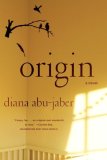Book Club Discussion Questions
In a book club? Subscribe to our Book Club Newsletter!
Please be aware that this discussion guide will contain spoilers!
- Which of the twin plots of Origin do you find more
appealing—the "whodunit," or the "who-am-I" of Lena's own self-discovery?
How are they related? How are the two kinds of exploration similar, or
different, in real life and in fiction?
- Which of the two men pursuing Lena did you want her to end up
with—Charlie or Keller? Why? How would you describe the differences between
these two men? Who is the better protector for Lena, and does she really
need to be protected?
- What about the apes? What did that aspect of the story bring to this
novel? Did you find it believable? Overall, was it a drawback or an
enrichment of the story? How do you think it resonates thematically?
- What other kinds of "myths" might people have about their own origins?
Do we all embroider upon or mythologize our childhoods to some extent?
- Gender, ethnic origin, religious identification, dysfunctional families,
where you're from, what you do for a living—these are a few ways of talking
about identity that are popular in our culture today. How do they each play
out in Origin? In your own personal identity story? Which has most
shaped your life?
- Do you believe in intuition? Is Lena's intuition a mystical ability, or
something genetic, or related to her upbringing, or simply a highly
developed form of science based on knowledge and observation?
- Why is Lena so isolated? Is her own explanation different from yours? Do
people generally see her differently from how she sees herself? Is she
"arrogant," overly sensitive to others' opinions, or both?
- How much is this story shaped by being set in Syracuse, and in the cold
and snow? Could Origin take place anywhere—or is it defined by the
place in which this story is "born"?
- In this age of identity theft, what is the truest or most reliable proof
of your identity? Your fingerprint, your social security number, your life
story? If the last, what if you have a key aspect of your life story
wrong—are you still who you think you are?
Author's Picks: Getting
the Right Mix
In writing Origin, I searched high and low for models to help
me understand how one might go about combining a "literary" depth of characters
and setting with the suspense of a "genre" mystery or thriller. Eventually, I
found several novels that seemed to work for me as basic guides to achieving
this balance. Among those books, these were some of the most exciting to work
with:
- Kate Atkinson's Case Histories was especially helpful, as she
really had the mystery writer's sense of authority and powerful plotline as
well as a deeply literary insight into characters. I loved how her
protagonist, and indeed many of the characters, had a beguiling
world-weariness that defied simplistic formula personalities.
- I'd read Smilla's Sense of Snow by Peter Hoeg years ago when it
was first published, so my memory of the plotline is murky. It wasn't until
an Origin reader asked me if I'd been influenced by Smilla
that I realized that it probably was at least a subconscious piece of my
inspiration. I remembered feeling intrigued and haunted by the novel's use
of snow, cold, and ice, its beauty and menace.
- I was captivated by the way Donna's Tartt's The Secret History
built a suspenseful mystery story within complex layers of setting, voice,
and characterization. This was a fine model of a book that managed to have
both a dramatic, page-turning plot as well as a sophisticated prose style
and flavor.
- Jeffrey Eugenides's Middlesex was helpful to me as a model of
the sort of novel that is immersed in its milieu; in which the details of an
actual city—its tenor, details, and history—become an important, evocative
feature of the plot itself, just as writers like James Joyce, Eudora Welty,
and Willa Cather wrote about their own "native places."
I consulted many books on fingerprinting technique and forensics, but some of
the technical guides that were most useful to me were:
- Crime Scene: The Ultimate Guide to Forensic Sciences by Richard
Platt
- The Casebook of Forensic Detection by Colin Evans
- DNA Fingerprinting by Ron Fride
- The Forensic Casebook by N. E. Genge
- Crime Lab by John Houde
Special mention should go to the Discovery Fingerprinting Kit, a junior
forensics lab that includes rubber stamps, fingerprinting powder, and cards, and
is recommended for ages eight and up as well as for—in my humble opinion—novice
writers of thrillers!
Unless otherwise stated, this discussion guide is reprinted with the permission of W.W. Norton & Company.
Any page references refer to a USA edition of the book, usually the trade paperback version, and may vary in other editions.
